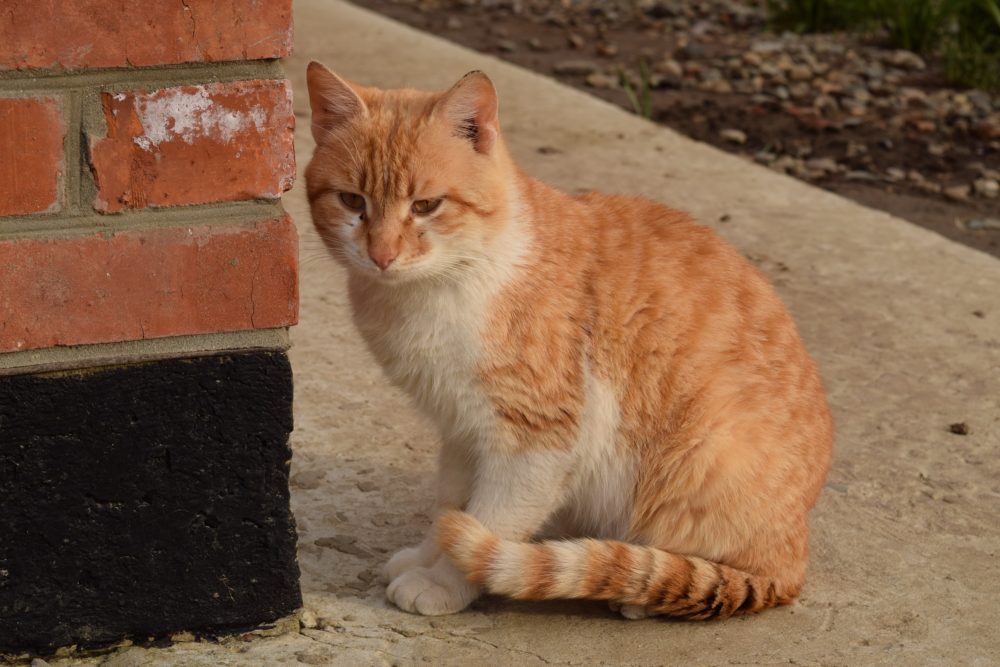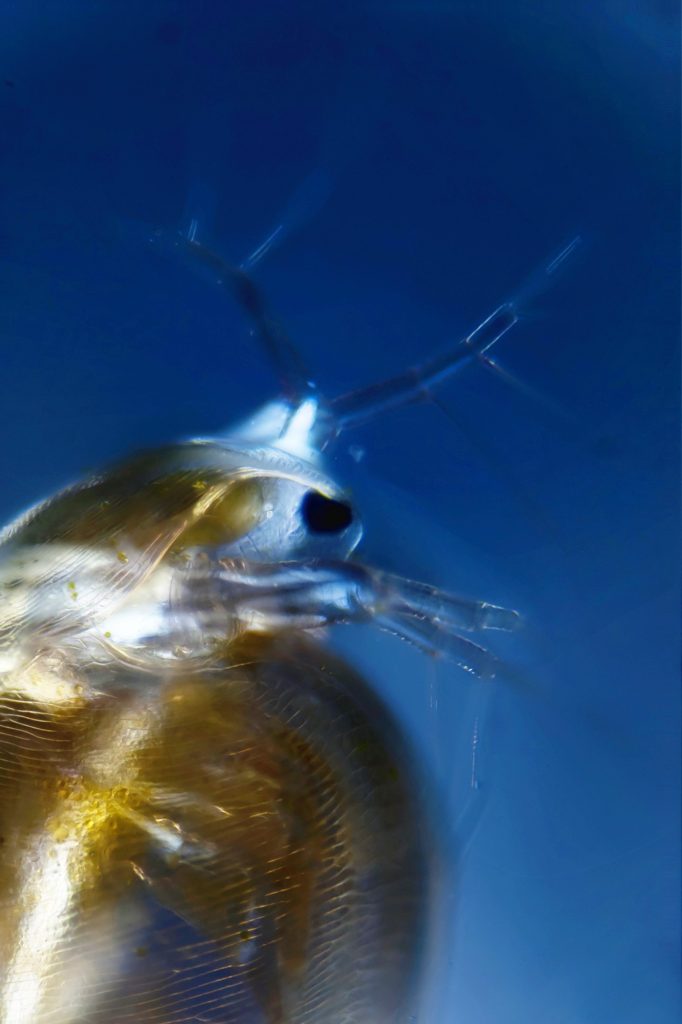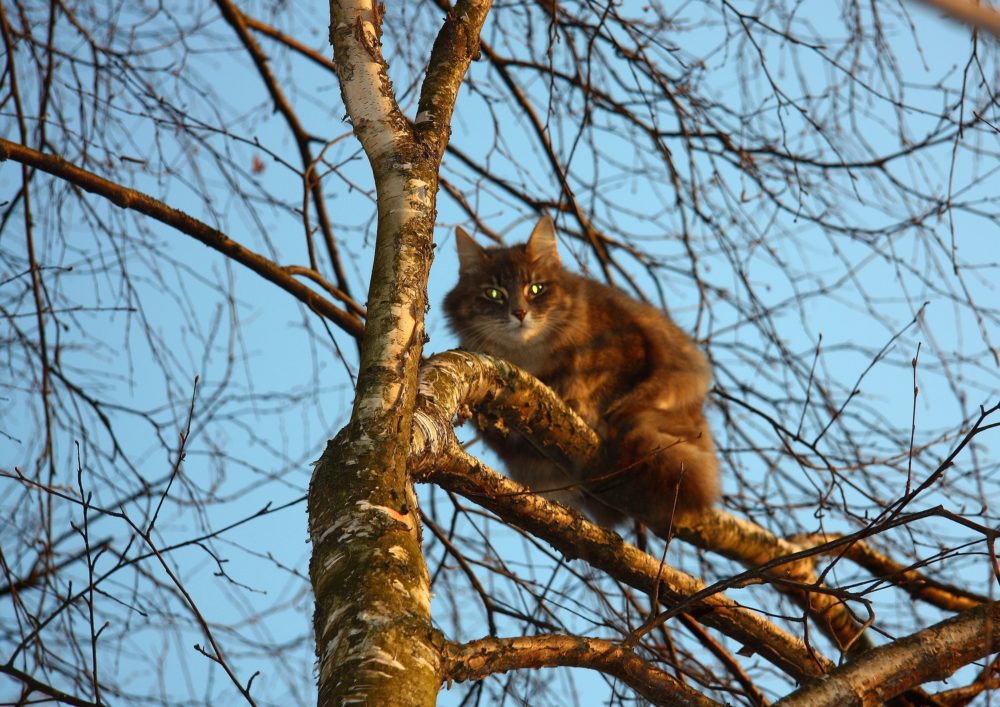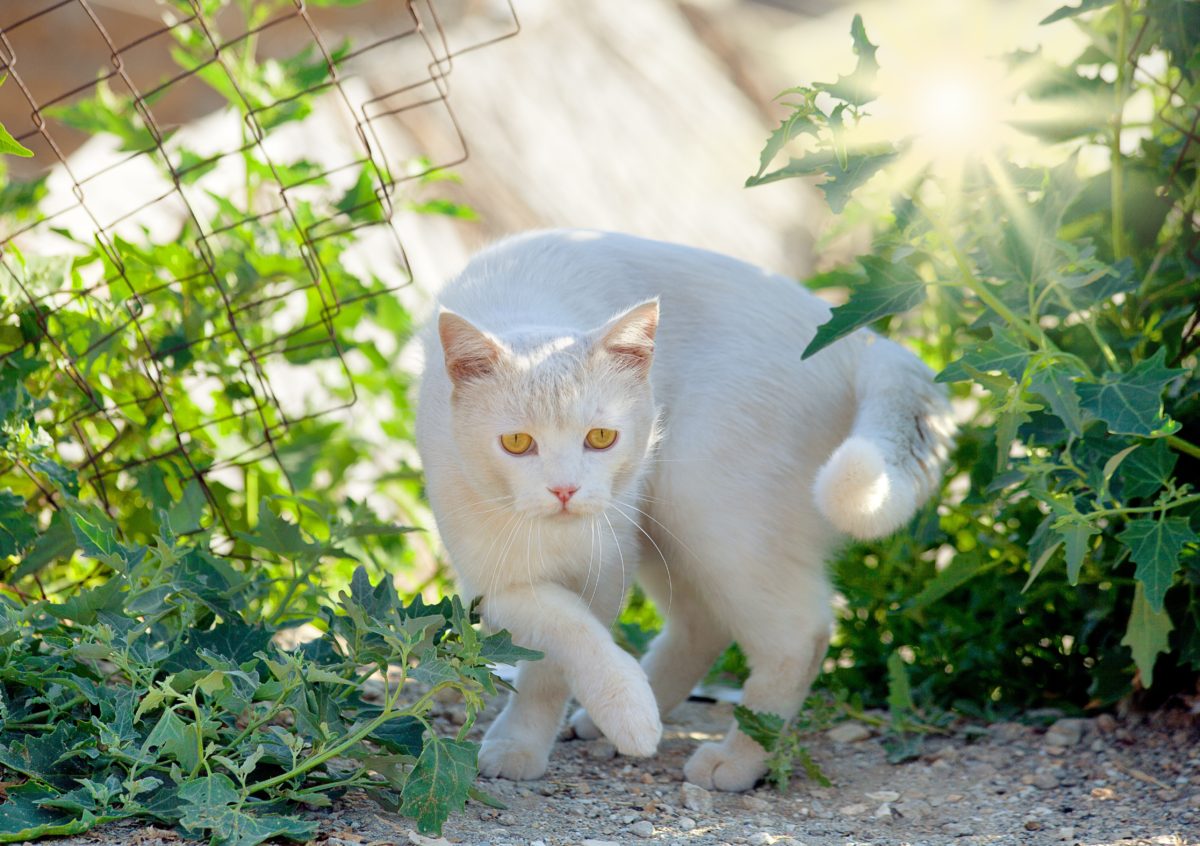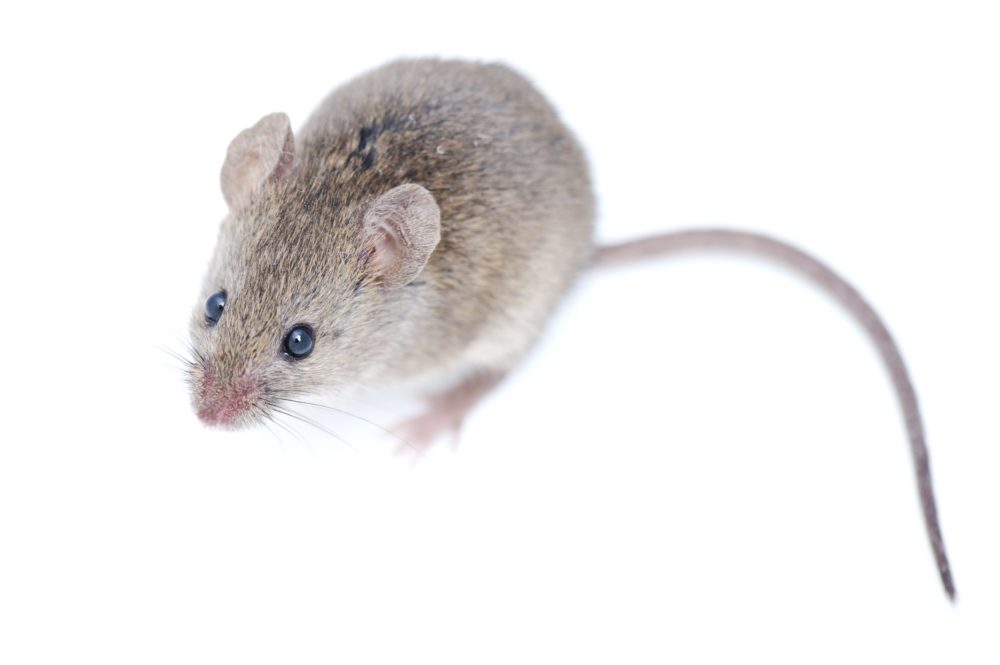
Can cats get fleas from mice? Homeopathic & natural remedies for cat fleas
Just hearing or saying the word fleas can cause us to start itching! It’s no wonder that as cat owners we will therefore do everything we possibly can to prevent our cat from catching fleas. Despite their tiny size, just a few millimeters in length, fleas can cause a great deal of discomfort causing bites and irritation to the skin. They also carry other parasites such as tapeworm. Therefore, avoiding fleas is a priority for cat owners. But where do fleas come from? How do cats get them?
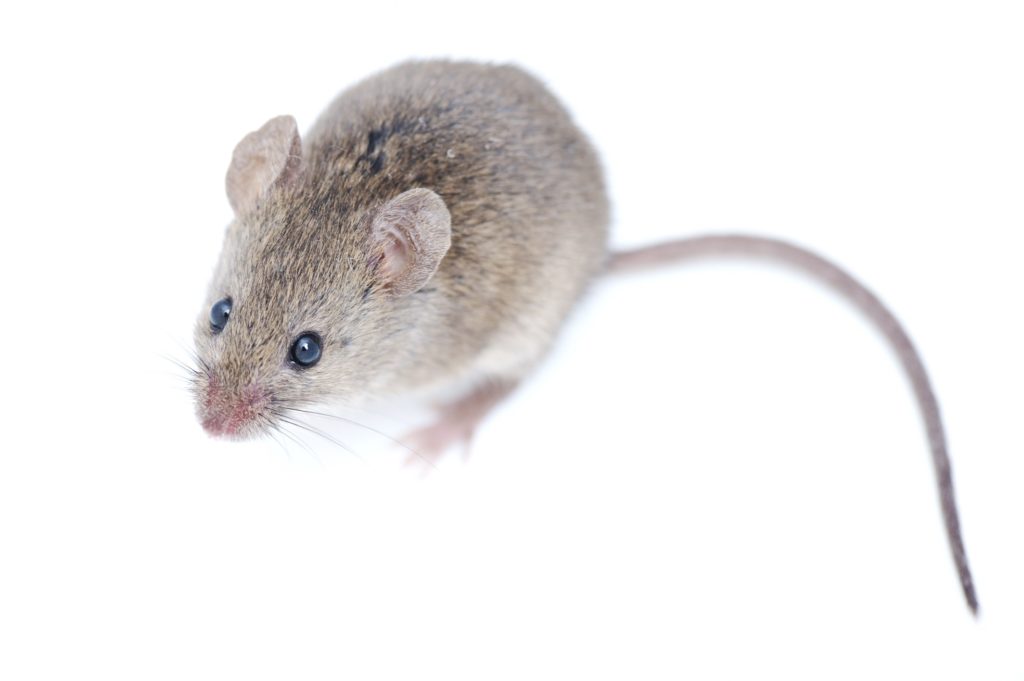
Can cats get fleas from mice?
The short answer is Yes, cats can get fleas from mice. Cat fleas are one of the most common types of fleas and can be found on dogs, mice, rats, birds, squirrels and rabbits to name but a few possible carriers. Fleas cling on to their host’s fur and can jump from one animal to another. So, if your cat does come into contact with another cat, or animal including a mouse, that has fleas, it only takes one flea to jump onto your cat and that flea then can start a new colony.
Although cats can get fleas from mice it is important to note that this is more of a possibility rather than a common occurrence. Rodents usually have a different species of fleas that infest them which don’t infest cats (or dogs!). Likewise, cat fleas prefer other hosts rather than rats or mice. It has been known for mice to carry cat fleas and cats to carry mice fleas, but it is infrequent.
Also, most cats are excellent hunters and a mouse is a perfect prey. It is unlikely that a mouse family will settle knowing there is a cat hunter living nearby. If you think there are mice around or in your home, humane mouse traps can be set up. Do not use poison as this can be dangerous to cats and children.
Where do outside cats catch fleas?
An outside cat is likely, especially in the summer months, to come into contact with fleas. Cats love to investigate gardens, wood piles, sheds, other cats and other animals where fleas are likely to be found. Even if you keep your own back yard debris free, cats that wander can will explore neighbouring woodpiles and grass clippings or other warm, dark, moist places where fleas thrive.
Can indoor cats get fleas?
Many cats live indoors but they too can still contract fleas. The most common ways an indoor cat gets fleas are:
- Fleas can be carried into the home by humans – on our clothes, shoes or in something that we have picked up. This is more likely if you are in contact with other pets in your work or visiting friends with pets.
- A new home may have dormant fleas therefore it is a good idea to thoroughly check for fleas before moving in.
- A mouse or rat infestation in the house can bring fleas indoors.
- Another pet, such as the family dog, can pick up fleas. Fleas can jump up to 18 cms vertically and up to 33 cms horizontally so can easily jump from one pet to another.
- Even indoor cats take outside visits be it to the veterinary, cattery or a groomer and it is possible for your cat to catch fleas from these visits.
How to prevent your cat having fleas
Prevention is always better than cure. The following tips will help to reduce the chances of your cat having fleas:
- Ensure your cat has a regular dose of flea prevention medication. Please seek the advice of your veterinary if you are unsure of what medication and dosage is best for your cat.
- Check your cat and any other pets regularly for fleas. Grooming your cat regularly will allow you to spot any fleas or skin problems early.
- If another pet has visited your household take particular attention to check for fleas after their visit.
- As fleas can be carried on clothes, shoes, bags etc. regular vacuuming will help keep pests at bay.
- Ensure you house is mouse and rat free. Do not leave scraps of food lying around and ensure any ventilation or plumbing openings are rodent proof.
- Any secondhand rugs, fabrics or furniture should be thoroughly check.
- A move into a new home should firstly have a thorough check to ensure there are no fleas or parasites present.
Can cats get fleas in winter?
Fleas thrive in warm, humid conditions and in most climates May to September will be the time that fleas are more common. In winter fleas are less likely to thrive and usually lay dormant. But with our pets living indoors in warm, humid conditions of a central heated home then this is a perfect environment for fleas to breed. Is it therefore important to check for fleas, and continue preventative steps, as listed above, all year round.
Natural remedies for preventing and treating cat fleas
If you have any concerns regarding fleas on your cat or have any questions regarding medication for flea prevention, please contact your veterinary.
Some cat owners are interested in exploring natural and home remedies to deal with fleas. These are the most common ones used among cat owners:
Lemons
Lemon juice is a very popular home remedy for treating fleas in cats. The lemon solution can easily be prepared as follows:
-
- Chop one or two lemons in half and place in a saucepan with a little water
- Bring to the boil
- Allow the lemons to soak for a few hours
- Drain the liquid and decant into a spray bottle
This solution can then be gently rubbed or sprayed into your cat’s fur, repeating as necessary until fleas are gone. Ensure that the delicate area around the eyes is avoided. If your cat is not keen on spray or being rubbed, try using a comb or brush dipped into the solution and giving the fur a good brushing.
Apple Cider vinegar
This is a very popular home remedy for treating fleas in cats. Simply mix apple cider vinegar with equal quantity of water and spray or rub the mixture onto your cat’s coat. If spraying, ensure that you shield your cat’s eyes from the spray mist. Apple Cider is also safe if ingested by your cats and it can be useful to put a little into their food to help with fleas too. Simply mix a ¼ of a teaspoon of the diluted mixture into food. White vinegar can also be used.
Cedar chips
Fleas detest the smell of cedar chips. By placing these chips in your garden or around your cat’s bedding this can help deter fleas. However, some cats are known to be allergic to cedar, therefore please ensure your cat is ok with cedar before trying this.
Natural flea collars
There are many varieties of natural flea collars available infused with certain essential oils. This may help to deter fleas rather than cure an infestation.
Flea comb
These fine-toothed combs are designed so that the fleas and their eggs can be removed when combing. This will be much easier if your cat is used to being groomed. We have a whole article dedicated to how and why we should groom our cats regularly – ‘Do I need to groom my cat? An introductory guide’.
Chamomile Tea
A gently but powerful method suitable for use on cats and kittens. Soak 2 tbsp of loose chamomile tea in boiling water for up to 30 minutes. Strain the tea and let it cool before spraying your cat’s fur. Chamomile is particularly soothing on irritated or itchy skin.
Rosemary
 The aromatic herb rosemary is one that is classed as non-toxic to cats. It can be very effective in treating fleas and also aid hair growth where scratching has occurred leading to hair loss. Simply soaking a handful of rosemary in hot water and once cooled, use the liquid on your cat’s fur.
The aromatic herb rosemary is one that is classed as non-toxic to cats. It can be very effective in treating fleas and also aid hair growth where scratching has occurred leading to hair loss. Simply soaking a handful of rosemary in hot water and once cooled, use the liquid on your cat’s fur.
This list is by no means exhaustive and you will discover many more home-made remedies on the internet. It has to be stressed that natural does not always mean safe. Many herbs, plants and essential oils are toxic to cats, some can be fatal. Please ensure you research thoroughly and ALWAYS check with your veterinary if you have any doubts.
Homeopathic remedy for cat fleas
George Macleod was one of the world’s foremost authorities on the homeopathic treatment of animals. He was one of the few veterinary surgeons to use homeopathic medicines wholly and exclusively. In his book ‘Cats: Homeopathic Remedies’ he recommends a regular course of Sulphur 30c to help prevent your cat from having fleas. He recommends a course of Sulphur 30c, twice a week, for 4 weeks, repeated after a break of 2 weeks without treatment. While some cats will happily take the tiny homeopathic tablets, some may prefer them crushed and be licked off a spoon. Some remedies are available as tinctures or water dilutions and this may suit some cats better. Of course, there is always one little kitty somewhere that will simply refuse to take anything at all. If this is the case the remedy can be put in the food. If you are interested in discovering more about homeopathic remedies for cats please see our article ‘Can you give Arnica to cats, and other homeopathic remedies for cats’.
Other articles you may find of interest:
Natural and alternative healing for cats – an introductory guide
Do I need to brush / groom my cat? An introductory guide
Creating the ultimate cat friendly garden – 10 top tips
Should I let my cat outside at night? Indoor or outdoor cat?
